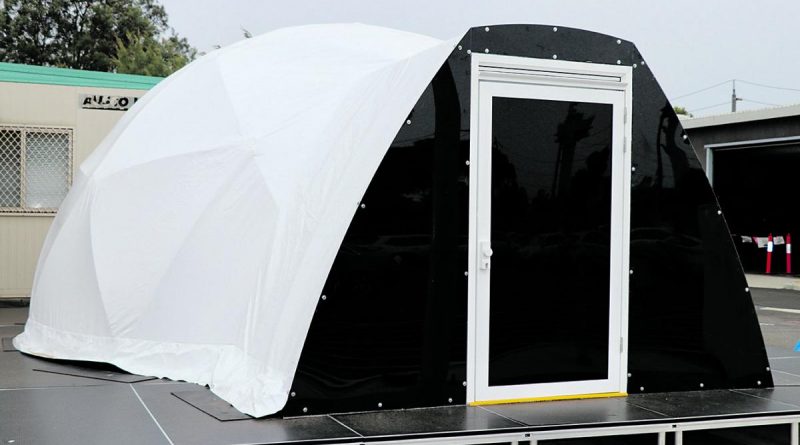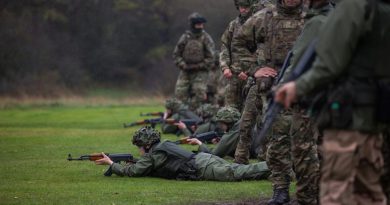Future tech tests reality

Robots controlled with thoughts, or connected to a 360-degree augmented reality simulator thousands of miles away, may be on the cards for the future, pending research being conducted by Defence Science and Technology Group.
CAPTION: The ‘igloo’, at Fisherman’s Bend, Melbourne.
“Tactical autonomous systems”, as they’re called by Integrated Personnel Protection Group Head Tim Bussell, are just the tip of the iceberg.
They’re also working on integrating things such as microphones attached to a soldier’s jaw to enable silent speech, and augmented reality heads-up displays on helmets, similar to a video game.
“Someone on the ground who’s carrying a weapon, and everything else they need to do, doesn’t have time to look down at a screen or joystick,” Mr Bussell said.
“We’re trying to connect these robots into soldiers’ thought processes, so they can be controlled with gestures, or eye movements or, eventually, be able to think about what they want it to do.”
While it might be a long time until you can telepathically check a building before entry, Defence Science and Technology Group has the ability to control robots through the “igloo”, part of its Soldier Capability Network.
The igloo, at Fisherman’s Bend in Melbourne, is a 360-degree virtual reality environment, which can be linked to a robot in a remote location.
Mr Bussell said while the long-term goal was a mobile solution, streaming to goggles or a heads-up display, the igloo let his team perfect the underlying technology.
There are all sorts of issues – latency and feedback fidelity are just some – but you have to start somewhere, and that’s what we’re doing.
The network also includes the Combat Applications Lab in Townsville as well as the Defence Science and Technology Group labs in Adelaide.
And while there is intent to build Ai into the system, Mr Bussell said it’s unlikely you’ll see a Terminator-esqe figure around your local base in the future.
The team works hand-in-hand with Diggerworks and Combined Training Centres.
They use the motto “learn fast, decide early”, an adaption of Lockheed Martin’s Skunkwork’s motto, “fail fast, fail early”. But the revised motto doesn’t necessarily equate failure to a dead end.
“In science, learning that something doesn’t work isn’t a failure, it’s a step towards the next thing,” Mr Bussell said.
“By avoiding the use of the word fail, we’re focusing on the successes and learning more about our systems so we can either improve on them or discount what doesn’t work.”
.
.

.
.





